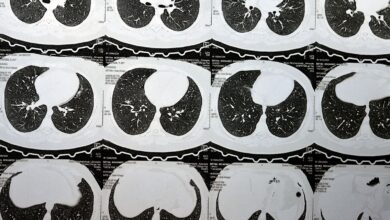‘We Needed to Do Something Different’: What We Heard This Week

— Quotable quotes heard by MedPage Today‘s reporters
by
MedPage Today Staff
January 7, 2024
“It was very clear just over the last 10 years … we needed to do something different.” — AnnaMarie Connolly, MD, chief of education and academic affairs at the American College of Obstetricians and Gynecologists, on next season’s changes made to the application process for ob/gyn residency programs.
“Legislative efforts on a more local/state level is where the rubber meets the road.” — Elizabeth Dineen, DO, of Mayo Clinic in Jacksonville, Florida, raising awareness for cardiac arrest following Buffalo Bills safety Damar Hamlin’s collapse during a football game.
“The problem is more complicated than was previously thought.” — Joel Kaufman, MD, MPH, of the University of Washington in Seattle, finding that swapping cleaner cookstove fuel during pregnancy didn’t improve infant health.
“There’s been a lot of speculation on how many kids have symptoms after COVID.” — Elizabeth Schlaudecker, MD, MPH, of the Cincinnati Children’s Hospital, commenting on the rate of post-COVID-19 conditions in kids.
“Our estimate of $70 billion in inpatient costs for 2 years of the pandemic is more than double the U.S. investments made to develop vaccines.” — Kandice Kapinos, PhD, of the RAND Corporation in Virginia, on the increase in hospital costs for inpatient COVID-19 treatment outpacing the rate of medical inflation.
“I hope this study will reduce doctors’ concerns when prescribing GLP-1 receptor agonist glucose-lowering medications to their patients.” — Rachel Dankner, MD, MPH, of Sheba Medical Center in Israel, clearing GLP-1 receptor agonists of pancreatic cancer risk.
“Clinicians should ask about persistent symptoms and not solely attribute new symptoms to patients’ pre-existing disability.” — Benjamin Abramoff, MD, of the University of Pennsylvania in Philadelphia, discussing long COVID symptoms in people with neurological disabilities.
“We’re just trying to go after the folks who were in positions of trust, who dropped the ball.” — David Slossberg, JD, a Connecticut lawyer, representing former students of a now-shuttered for-profit nursing school in Connecticut
“It sounds to me like xylazine manufacturers, distributors, and vets will be exempt from all the laws that apply to Schedule III drugs.” — Andrew Kolodny, MD, of Brandeis University in Massachusetts, on the veterinary industry potentially working closely with Congress when regulating xylazine.
“We have found that adding salt to foods at the table is related to various disorders.” — Lu Qi, MD, PhD, of the School of Public Health and Tropical Medicine at Tulane University in New Orleans, on new research linking salt with chronic kidney disease.

